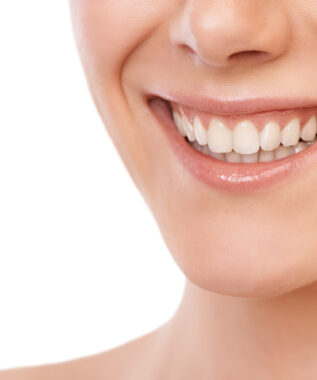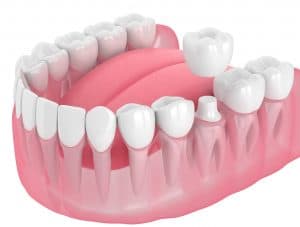 Different types of dental restorations are typically designed to a specific type and range of concern with your tooth and/or oral health. For example, minor cases of tooth wear, small cavities, and more can often be effectively addressed by restoring the tooth with a small amount of composite dental resin. However, for more extensive cases of tooth damage, restoring the tooth may require a more comprehensive option, such as completely covering and protecting the tooth with a lifelike dental crown (more…)
Different types of dental restorations are typically designed to a specific type and range of concern with your tooth and/or oral health. For example, minor cases of tooth wear, small cavities, and more can often be effectively addressed by restoring the tooth with a small amount of composite dental resin. However, for more extensive cases of tooth damage, restoring the tooth may require a more comprehensive option, such as completely covering and protecting the tooth with a lifelike dental crown (more…)
What Happens to Your Smile After Losing a Tooth?
 Many people who experience tooth loss recognize the severity of the situation, even if they don’t know exactly what problems are bound to arise from it. Fortunately, this prompts many people to seek to replace their lost teeth as soon as possible, which helps them avoid some of the more devastating, long-term consequences that can result from it. However, not everyone understands the consequences of losing teeth, or how they can become increasingly more complicated the longer it takes to address their condition. Today, we examine what happens to your smile after losing a tooth, and how these changes can impact your oral health and quality of life for years to come. (more…)
Many people who experience tooth loss recognize the severity of the situation, even if they don’t know exactly what problems are bound to arise from it. Fortunately, this prompts many people to seek to replace their lost teeth as soon as possible, which helps them avoid some of the more devastating, long-term consequences that can result from it. However, not everyone understands the consequences of losing teeth, or how they can become increasingly more complicated the longer it takes to address their condition. Today, we examine what happens to your smile after losing a tooth, and how these changes can impact your oral health and quality of life for years to come. (more…)
Why Do Some Teeth Wear Down Faster?
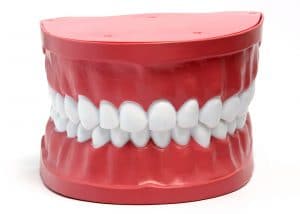 There are many different reasons for your teeth to exhibit certain problems with their structures. One of these problems includes the wearing down of your teeth’s chewing surfaces, which can occur for a number of different reasons and have an even broader range of impacts on your oral health. When your teeth become worn-down, it can directly impact their health and integrity, and the cause of it could become the source of even greater problems for your smile later. Today, we examine why some teeth might wear down fast, what it could mean for the state of your oral health, and how we can help you avoid further problems by restoring your teeth and addressing the cause of their excessive wear. (more…)
There are many different reasons for your teeth to exhibit certain problems with their structures. One of these problems includes the wearing down of your teeth’s chewing surfaces, which can occur for a number of different reasons and have an even broader range of impacts on your oral health. When your teeth become worn-down, it can directly impact their health and integrity, and the cause of it could become the source of even greater problems for your smile later. Today, we examine why some teeth might wear down fast, what it could mean for the state of your oral health, and how we can help you avoid further problems by restoring your teeth and addressing the cause of their excessive wear. (more…)
When Does Extracting a Tooth Require Oral Surgery?
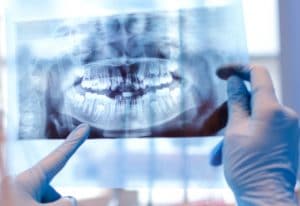 Tooth extraction isn’t the typical answer for most oral health concerns. When a tooth is damaged or decayed, or is compromised by some structural concern, the problem can usually be addressed with the right custom-made dental restoration. When the tooth can’t be saved, extracting it is typically a simple procedure that involves carefully grasping and removing the tooth from its socket. However, depending on the reason why your tooth needs to be extracted, as well as several other important factors, extracting the tooth may require minor oral surgery. (more…)
Tooth extraction isn’t the typical answer for most oral health concerns. When a tooth is damaged or decayed, or is compromised by some structural concern, the problem can usually be addressed with the right custom-made dental restoration. When the tooth can’t be saved, extracting it is typically a simple procedure that involves carefully grasping and removing the tooth from its socket. However, depending on the reason why your tooth needs to be extracted, as well as several other important factors, extracting the tooth may require minor oral surgery. (more…)
What Makes Dental Implants Successful?
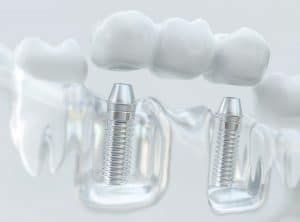 People who experience tooth loss and choose dental implants to rebuild their smiles make the choice for different reasons. For example, if you’ve recently lost one or more teeth, then choosing dental implants can help you preserve more of your smile by addressing the consequences. If you’ve dealt with tooth loss for a while, you might choose implants to provide a more comfortable and stable restoration. However, the fact that dental implants are so successful is often similar for everyone. Thanks to their biocompatible nature and ability to replace your lost teeth roots, dental implants can do more to restore and preserve your smile than conventional restorations. (more…)
People who experience tooth loss and choose dental implants to rebuild their smiles make the choice for different reasons. For example, if you’ve recently lost one or more teeth, then choosing dental implants can help you preserve more of your smile by addressing the consequences. If you’ve dealt with tooth loss for a while, you might choose implants to provide a more comfortable and stable restoration. However, the fact that dental implants are so successful is often similar for everyone. Thanks to their biocompatible nature and ability to replace your lost teeth roots, dental implants can do more to restore and preserve your smile than conventional restorations. (more…)
Saving a Tooth After It Fractures
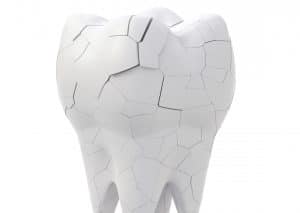 Healthy, natural teeth are incredibly strong, but they don’t heal. Therefore, when a tooth’s structure becomes damaged, the threat to the tooth’s health and integrity will remain and grow worse over time. For example, if a tooth fractures, then the crack in its structure can grow larger as the tooth is exposed to more of your bite’s pressure. This can place the tooth at a much greater risk of being lost, and of developing more severe concerns in the process. To save a tooth after it fractures, you’ll have to have it assessed and treated as soon as possible at your dentist’s office. (more…)
Healthy, natural teeth are incredibly strong, but they don’t heal. Therefore, when a tooth’s structure becomes damaged, the threat to the tooth’s health and integrity will remain and grow worse over time. For example, if a tooth fractures, then the crack in its structure can grow larger as the tooth is exposed to more of your bite’s pressure. This can place the tooth at a much greater risk of being lost, and of developing more severe concerns in the process. To save a tooth after it fractures, you’ll have to have it assessed and treated as soon as possible at your dentist’s office. (more…)
What You Want to Know About Tooth Extraction
 For many people, most of their smile preservation efforts involve taking steps to preserve their healthy, natural tooth structure. Even if an oral health concern develops and threatens your teeth, seeking treatment for it as soon as possible can help you maintain your goal of retaining your healthy, natural teeth. However, some people may not be able to successfully preserve all of their natural teeth, and in some cases, the threat can best be resolved by extracting a tooth that’s become severely compromised. (more…)
For many people, most of their smile preservation efforts involve taking steps to preserve their healthy, natural tooth structure. Even if an oral health concern develops and threatens your teeth, seeking treatment for it as soon as possible can help you maintain your goal of retaining your healthy, natural teeth. However, some people may not be able to successfully preserve all of their natural teeth, and in some cases, the threat can best be resolved by extracting a tooth that’s become severely compromised. (more…)
Why Addressing Tooth Loss Soon Matters Most
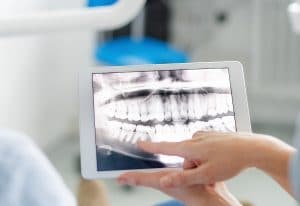 While some dental health concerns can go unnoticed for some time before they become obvious, tooth loss is the kind of problem that’s hard to miss. In fact, because it often occurs due to preventable and treatable conditions (such as gum disease), tooth loss isn’t always a surprise by the time it does occur. However, what may surprise may people is the importance of addressing the loss of a tooth as soon as possible, and the reason dental implants can often provide the best results. (more…)
While some dental health concerns can go unnoticed for some time before they become obvious, tooth loss is the kind of problem that’s hard to miss. In fact, because it often occurs due to preventable and treatable conditions (such as gum disease), tooth loss isn’t always a surprise by the time it does occur. However, what may surprise may people is the importance of addressing the loss of a tooth as soon as possible, and the reason dental implants can often provide the best results. (more…)
How Can Dentures Work Better with Dental Implants?
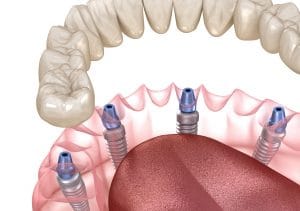 For patients who’ve experienced complete tooth loss, or edentulism, on their upper or lower dental ridge, a denture is typically the option for restoring their smiles’ appearance and their bite’s ability to function. Today’s modern dentures can do an exceptional job of mimicking the appearance of your healthy, natural teeth to ensure optimal results when rebuilding your smile. However, most patients who wear a traditional denture can benefit even more by supporting their full restoration on a series of dental implant posts. (more…)
For patients who’ve experienced complete tooth loss, or edentulism, on their upper or lower dental ridge, a denture is typically the option for restoring their smiles’ appearance and their bite’s ability to function. Today’s modern dentures can do an exceptional job of mimicking the appearance of your healthy, natural teeth to ensure optimal results when rebuilding your smile. However, most patients who wear a traditional denture can benefit even more by supporting their full restoration on a series of dental implant posts. (more…)
Can Porcelain Veneers Minimize Your Smile Makeover?
 Improving your smile can do a lot to improve other aspects of your life, such as your overall level of self-confidence. Sometimes, though, improving your smile can seem like it’s going to be a complicated endeavor, especially if it’s affected by multiple different types of cosmetic concerns. Fortunately, more people are surprised to learn that improving their smiles’ appearance and their confidence can be simpler than they expect. That’s often thanks to the use of custom-designed porcelain veneers, which can address a multitude of concerns to create a minimally invasive smile makeover. (more…)
Improving your smile can do a lot to improve other aspects of your life, such as your overall level of self-confidence. Sometimes, though, improving your smile can seem like it’s going to be a complicated endeavor, especially if it’s affected by multiple different types of cosmetic concerns. Fortunately, more people are surprised to learn that improving their smiles’ appearance and their confidence can be simpler than they expect. That’s often thanks to the use of custom-designed porcelain veneers, which can address a multitude of concerns to create a minimally invasive smile makeover. (more…)




